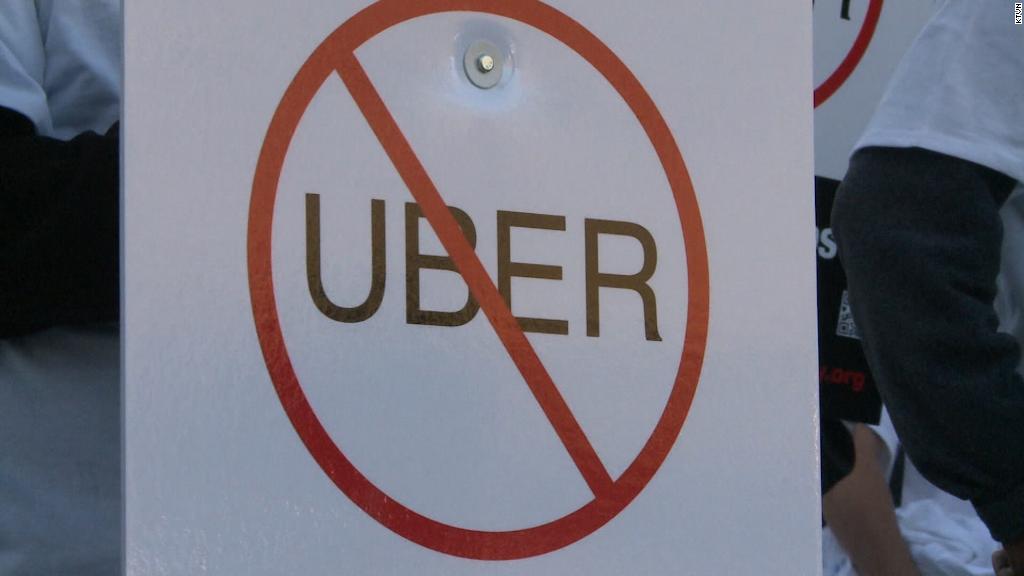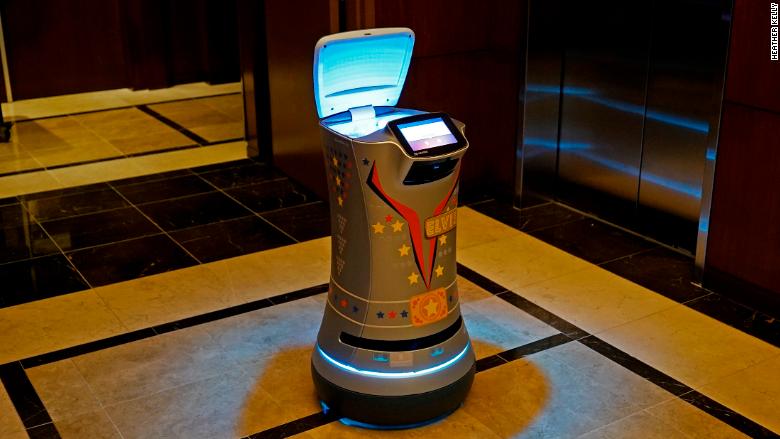
Elvis just started a new, somewhat boring job. When a guest at the Renaissance Hotel in Las Vegas needs a toothbrush or an extra towel, he brings it to their room.
Three-feet tall and covered in decorative stars, Elvis is a robot. And while it doesn't replace any human employees at the moment, it is a sign of what's next for Las Vegas.
Earlier this month, Las Vegas hosted CES -- one of the largest technology shows in the world. Self-driving cars, cleaning robots, and AI-powered systems offered a peek into the city's own automated future.
But Las Vegas is also the U.S. city most at risk for losing jobs to automation, according a study from the University of Redlands. In 20 years, about 65% of the city's jobs could be automated.
Most Las Vegas workers hold low-paid service positions such as cashier, office clerk and cleaning staff. They work in restaurants, hotels and offices. Their daily routines often involve repetitive tasks, which are ripe for automation.
For example, Las Vegas has approximately 39,000 retail salespeople. About 36,000 of those positions could be technically automated by 2035, according the study. Cashier, cook and game dealer jobs could be automated almost entirely. How many positions actually end up automated depends on factors like cost and if customers accept the switch.
Related: Inside Amazon Go: the store of the future
What will happen when the jobs in Las Vegas are gone?
"We expect an incredible amount of increase in income inequality," said Professor Johannes Moenius, who worked on the University of Redlands study. "We'll likely have an over supply of people without education. Some of them we can train and some we can't ... They'll have to go into early retirement."
Black and Hispanic workers are more at risk to lose their jobs to automation than white employees, according to Moenius. Because women are more likely to work in the types of jobs at risk of automation, they will be disproportionately affected.
The biggest determining factor will be education. People with a doctoral degree only have a 13% chance of being replaced by robots and AI, while people with only a high school degree have a 74% chance, according to the study.

"We're not Luddites. You're not going to stop technology," said D. Taylor, president of the national Unite Here union and former head of the Las Vegas culinary union.
Instead, Taylor is focused negotiating contracts to include training that helps workers transition to different jobs, and severance with health and retirement benefits if people lose their careers to automation.
"I think this is a new industrial revolution that certainly, on public policy, hasn't been thought out enough," said Taylor.
Retraining takes time. Instead of waiting for people to lose their jobs, cities and business may need to invest in retraining now and come up with plans for people who can't make the transition, like older employees.
The robot revolution might be closer than many in Las Vegas realize. According to Moenius, the real impact will hit the city in five to 10 years.
Related: 17 cool gadget that tease the future from CES
Automation is already taking jobs, but not enough to have any real impact on employment numbers. McDonald's and other food chains have kiosks for ordering. Silicon Valley company Knightscope makes robots that replace security guards (with mixed results). Savioke, the maker of Elvis, has its Relay robots in hotels across the country. Amazon just opened its first cashier-less grocery store.
Las Vegas has grappled with similar issues before, long before anyone imagined cars could drive themselves. Back when slot machines only took coins, people roamed casino floors making change. Relatively simple technology, from poker machines to ATMs, have replaced various gaming jobs over the years.
Even if locals do end up struggling to find work, the city will likely carry on as a tourist attraction for outsiders who have jobs and can afford vacations.
"Vegas will still be Vegas and what characterizes Vegas will still be the same," said Moenius. "You will see fewer people face-to-face in the service sector, but Cirque du Soleil will still be there."

